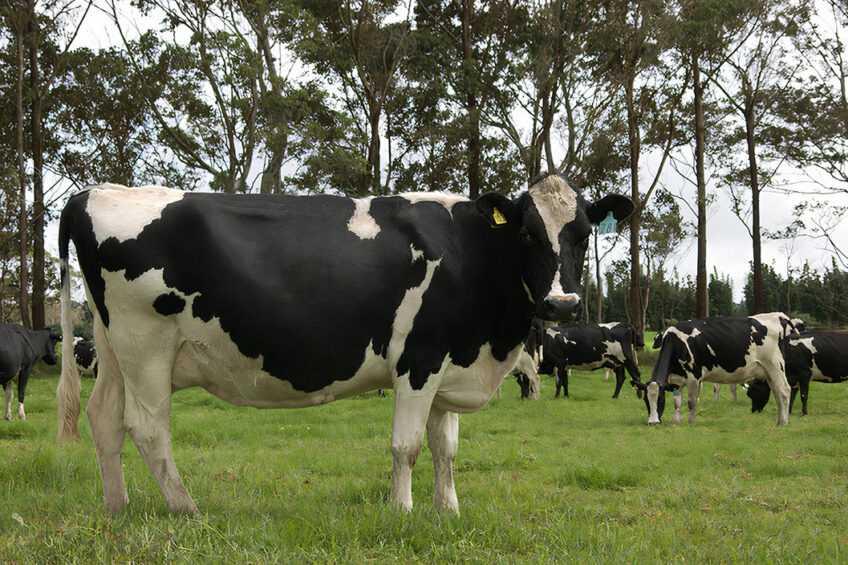Red seaweed replication to cut dairy methane

Australian startup Rumin8 is working on a dietary supplement synthetically replicated from red seaweed, which stops the creation of methane.
Rumin8 says it identifies naturally occurring compounds that have anti-methanogenic properties and reproduces them in a highly efficient, low-cost, scalable, and high-quality process to feed to livestock to reduce their emissions.
The startup, based in Perth, has the backing of investors such as Bill Gates. Rumin8 recently closed Phase 2 of its seed funding round, raising US$12 million, led by Bill Gates-founded Breakthrough Energy Ventures (BEV) with participation from Andrew and Nicola Forrest’s agri-food business Harvest Road Group.
The funding will be used to accelerate Rumin8’s road to commercialisation. Rumin8 is the first Australian-based BEV portfolio company. Phase 2 seed round of funding of US$12 million is to be spent on commercial trials in Australia, New Zealand, Brazil and the USA, product brand development, and pilot manufacturing plant development as Rumin8 moves towards commercialisation of its methane busting feed additives.
Rumin8 managing director, David Messina, emphasises that Rumin8’s laboratory results continue to yield excellent results. “Our animal trials are reflecting the laboratory results, and the financial modelling we are undertaking is indicating we will be able to supply our products at a commercial price point. Prior to the Phase 2 seed funding round, we were progressing a number of key work streams sequentially. Now we have the resources to progress them in parallel, speeding up the road to commercialisation.”
More than 85% methane reduction
The red seaweed Asparagopsis is currently being used as a supplement feed for dairy cows and has shown to reduce greenhouse gas emissions. Research by the Australian organisation, CSIRO, has shown that Asparagopsis seaweed has the potential to reduce emissions by over 80% in laboratory trials.
Dairy giant Fonterra entered a partnership with Australian company Sea Forest in 2020 to see if using Asparagopsis seaweed as a supplement feed for dairy cows could reduce greenhouse gas emissions. The seaweed contains the chemical bromoform, which is what supposedly inhibits methane production.
In 2022, Fonterra expanded its trial with Asparagopsis. In the first stage of the trial, 900 dairy cows were fed small amounts of the seaweed and there haven’t been any red flags at any stage.
Rumin8 says it has drawn on a decade of research and development, harnessing the active ingredient from seaweed that targets the methanogenic pathways in the rumen of livestock. “By reducing ruminant methane, we enable the animal to convert otherwise lost energy into increased productivity for the animal to create a compelling value proposition for farmers,” said Messina.
The company says it is currently perfecting several formulations and delivery modalities to suit diverse livestock production systems to provide low-effort and affordable solutions to producers. “Ongoing trials are consistently demonstrating more than 85% methane reduction. That equates to 2 tonnes of carbon emissions removed from the air, per cow, per year.”
Trials in New Zealand
“The demand for sustainable protein has never been more apparent, which is why BEV is keenly interested in reducing methane emissions from beef and dairy,” says Carmichael Roberts of BEV. “Rumin8 offers a low-cost, scalable toolbox that has already proven to be effective in reducing emissions. Our team will support Rumin8 in working closely with farmers to expand the reach of this solution globally.”
Messina says Rumin8 has received considerable support from climate funds, and the Phase 2 seed round had closed over-subscribed. “We have been very pleased with the reception we have received from climate impact funds around the world. There is a genuine desire to fund solutions to enteric methane emissions from livestock,” he said.
In January this year, Rumin8 commenced 2 safety and efficacy trials of its methane-reducing feed supplements in New Zealand. The trials – one on beef cattle and one on dairy cattle – seek to test Rumin8’s product integration in the New Zealand pasture-based systems.
The trials will use different measuring methodologies – both recognised and validated in the field. The beef trial is utilising a methane measuring facility, which provides continuous measurements over 48 hours, while the dairy trial utilises so-called Greenfeed systems, which measure methane emissions throughout the duration of the trial taking short burst measurements throughout the day.
The first trial is a dose-response trial run by DairyNZ in Hamilton. Lactating dairy cows on a pasture-based diet will be offered a supplement 3 times per day to investigate the methane reduction potential in a pasture-based system.






